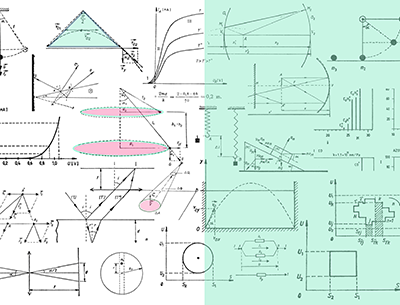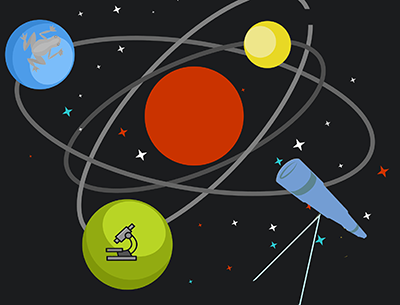Tip: We strongly encourage you to participate in the Course Selection process if you want to obtain a seat in online courses or other popular courses.
Course Selection
Spring 2026: January 23rd - February 3rd
Add/ Drop Appointments
Spring 2026: March 23rd - 24th
Open Enrollment
Spring 2026: March 25th - May 25th
Drop deadline
Spring 2026: June 1st
Winter 2026 course offerings
September 19th - 29th
Add / Drop Appointments
November 17th - 18th
For all returning students
Open Enrolment Period
November 19th - January 16th
Add/Drop Deadline
Add deadline: January 16th
Drop Deadline: January 23rd
Tip: We strongly encourage you to participate in the Course Selection process if you want to obtain a seat in online courses or other popular courses.
Featured Courses
PHIL 257: Philosophy of Math

PHIL 328 / LS 352: Human Rights

What are human rights, exactly? Which do we have, and why? What are the practical implications of human rights, for both individuals and institutions? This course will feature a comprehensive discussion of theory and history, of law and morality, and of national and international applications. We have three large lenses with which to view human rights in this course: 1) conceptually or philosophically; 2) historically, especially in terms of legal- and institutional developments; and 3) in terms of concrete contemporary case studies and problems. This course will employ these lenses to examine seven core principles and values of contemporary human rights practice: universality; equality; security; freedom; subsistence; social recognition; and democracy. Practical cases may include: technology and rights; health care and rights; economic inequality; free speech and censorship; women’s rights; and post-war reconstruction.
PHIL 302: Feminisms for Social Justice

Students will investigate how feminists conceptualize social justice in the struggle to create a better world by examining feminist theory as it engages with categories such as race, class, sexuality, and disability. Through this examination, students will explore the relationship between feminist theory and feminist practice. Students will also develop an understanding of a range of views about the nature of oppression and inequity as well as strategies for resisting oppression and inequity.
PHIL 258 / SCI 267: Intro to Philosophy of Science

The sciences are widely considered to be one of our best sources of knowledge about the world. In this course, we will investigate the nature and status of scientific knowledge. Topics will include scientific methodology, the roles of values and social factors in scientific knowledge production, scientific revolutions, scientific explanation, and the scientific realism debate. We will study several different accounts of the methods used by scientists, including accounts proposed by Carnap, Popper, and Kuhn. We will also ask whether science describes reality. Does the real world actually contain electrons or genes, for example, or is a literal interpretation of our scientific theories unwarranted? This question is at the heart of the debate about scientific realism. Through readings and class discussions, students will learn how to apply and evaluate a range of accounts of how scientific knowledge is produced. In-class activities and assessments will develop students’ reading comprehension and oral and written communication skills.
Intro to Philosophy of Science
PHIL 260 / CLAS 260 / SCI 266: Ancient Science

The ancient Greeks developed scientific theories that were influential for over a thousand years. Their worldview was different from ours, but they sought to explain some of the same phenomena that we grapple with today. In this course, we’ll study ancient Greek theories and methodologies in physics, astronomy, mathematics, meteorology, cosmology, and geography.
Complete course list
| course code | course title | course location |
|---|---|---|
| PHIL 101 | Challenging Ideas: Intro to PHIL | on-campus |
| PHIL 110A |
Knowledge and Reality |
online |
| PHIL 121 | Moral Issues | on-campus |
| Critical Thinking |
on-campus online |
|
|
Philosophy of Sex and Love |
online |
|
| PHIL 202 | Gender Issues | on-campus |
| PHIL 206 | Philosophy of Sport | on-campus |
| PHIL 215 | Business Ethics |
on-campus |
|
Ethics |
online |
|
| PHIL 226 | Biomedical Ethics | on-campus |
| PHIL 240 | Intro to Formal Logic |
online |
| PHIL 251 | Metaphysics and Epistemology |
on-campus |
| PHIL 257 | Philosophy of Mathematics | on-campus |
|
Philosophy of Science |
on-campus |
|
| Ancient Science |
on-campus |
|
|
Great Works: Ancient and Medieval |
on-campus | |
| PHIL 302 | Feminisms for Social Justice | on-campus |
| PHIL 327 | Philosophy of Law |
online |
| PHIL 328 | Human Rights | on-campus |
| PHIL 471- 001 | Equity, Sufficiency, and Limit | on-campus |
| PHIL 471- 002 |
Fairness and Anti-discrimination in AI |
on-campus |
For the official calendar descriptions, see the Undergraduate Calendar
Spring 2026 course offerings list
Featured Courses
PHIL 246: Scientific Revolutions

PHIL 260 / CLAS 260/ SCI 266: Ancient Science

PHIL 216: Probability and Decision Making

PHIL 329: Violence, Non-violence, and War

Compete Course offering List
| course code | course title | course location |
|---|---|---|
| PHIL 121 | Moral Issues | on campus |
| PHIL 145 | Critical Thinking | online |
| PHIL 201 | Philosophy of Sex and Love | online |
| PHIL 215 / ARBUS 202 | Professional and Business Ethics | online |
| PHIL 216 | Probability and Decision-Making | on campus |
| PHIL 226 | Biomedical Ethics | on campus |
| PHIL 246 | Scientific Revolutions | on campus |
| PHIL 256 / PSYCH 256 | Intro to Cognitive Science | online |
| PHIL 260 / CLAS 260 / SCI 266 | Ancient Science | on campus |
| PHIL 283 / CLAS 261 | Great Works: Ancient and Medieval | online |
| PHIL 324 | Social and Political Philosophy | online |
| PHIL 327 / LS 351 | Philosophy of Law | on campus |
| PHIL 329 / PACS 316 | Violence, Non-violence and War | on campus |
Please click the course code for the complete calendar description of each course. To see Saint Jerome's Philosophy department offerings, visit the Schedule of Classes
Projected future course offering 2026-2028 (in-person only)
NOTE: Below is a projection of in-person core and popular course offerings that is meant to assist you in planning how and when you might meet your academic requirements. While we aim to deliver these courses during the projected time slots, there are always unforeseen circumstances that can interfere with this. Please understand that this list is tentative and subject to change.
|
course |
2026 |
2027 |
2028 |
2029 |
|---|---|---|---|---|
| PHIL 101: Challenging Ideas |
Winter Fall |
Winter Fall |
Winter Fall |
Winter Fall |
| PHIL 121: Moral Issues |
Winter Spring Fall |
Winter Spring |
Winter Fall |
Winter Spring |
| PHIL 125: Happiness | Winter | Winter | Winter | |
| PHIL 145: Critical Thinking |
Winter Fall |
Winter Fall |
Winter Fall |
Winter |
| PHIL 202: Gender Issues | Winter | |||
| PHIL 205: Philosophy of Economics | Winter |
Fall |
||
| PHIL 206: Philosophy of Sport | Winter | Winter |
Winter Fall |
|
| PHIL 215: Business Ethics |
Winter Fall |
Winter Fall |
Winter Fall |
Winter |
| PHIL 216: Probability and Decision-Making | Spring |
Winter Fall |
Spring | |
| PHIL 221: Ethics | Fall | Fall | Fall | |
| PHIL 226: Biomedical Ethics |
Winter Spring Fall |
Winter Spring Fall |
Winter Spring Fall |
Winter Spring |
| PHIL 228: Ethics and AI | Spring | Winter | Spring | |
| PHIL 240: Intro to Formal Logic | Fall |
Fall |
Fall | |
| PHIL 246: Scientific Revolutions | Spring | Winter | Winter | |
| PHIL 251: Metaphysics and Epistemology | Winter | Winter | Winter | Winter |
| PHIL 252: Quantum Mechanics for Everyone | Winter |
Winter Fall |
||
| PHIL 255: Philosophy of Mind | Winter | |||
| PHIL 257: Philosophy of Math | Winter | Winter | ||
| PHIL 258: Philosophy of Science |
Winter |
Winter Fall |
||
| PHIL 260: Ancient Science |
Winter Spring |
Winter Fall |
Winter | |
| PHIL 283: Great Works: Ancient and Medieval | Winter | Winter | ||
| PHIL 302: Topics in Feminist Philosophy |
Winter |
|||
| PHIL 327: Philosophy of Law |
Spring |
Spring Fall |
Spring | Spring |
| PHIL 328: Human Rights | Winter | Winter | ||
| PHIL 329: Violence, Non-violence and War | Spring | |||
| PHIL 350: Topics in Epistemology | Fall | |||
| PHIL 356: Intelligence in Machines, Humans, and Other Animals | Winter | |||
| PHIL 358: Topics in Philosophy of Science | Fall | |||
| PHIL 363: Philosophy of Language | Fall | Winter | Winter | |
| PHIL 400: Philosophy as Practice | Winter | Winter | Winter |
This list is not a complete list as it does not include any of our online course offerings. Online courses, as well as additional in-person course offerings, are added to the list closer to the term in which they are offered. Therefore, the furthest course projections will appear to be the leanest as there are more additions to come.
Course offerings vary slightly from term to term. For the official calendar descriptions, see the Undergraduate Calendar
St. Jerome's University also offers Philosophy courses. The St Jerome's Philosophy course offerings are indicated in the Schedule of Classes with the suffix "J" under the course location.
Additional pages with course information
- Schedule of Classes (enrolment caps, and class times)
- Quest (instructors and campus locations)
- Course Selection Information
- Undergraduate calendar (descriptions and pre-requisites)
- Enrolment problems and course override